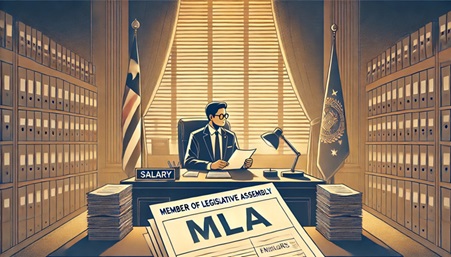Discrimination Lawyer in the workplace remains a serious issue worldwide. Discrimination lawyer specialize in protecting the rights of individuals who face unfair treatment based on factors such as race, gender, pregnancy, disability, and more. In this article, we’ll explore what discrimination lawyer do, the different types of discrimination lawyer, job roles, salaries, global demand, and other important information—all in simple language.
1. Who is a Discrimination Lawyer?
A discrimination lawyer is an attorney who specializes in handling cases related to unfair treatment in the workplace or other areas of life. These lawyers work to uphold laws that protect people from being treated differently or unfairly based on characteristics such as:
- Race
- Gender
- Pregnancy status
- Disability
- Age
- Religion
Discrimination lawyer can work for individuals, groups, or organizations, helping to ensure that everyone has equal opportunities, regardless of their background or personal circumstances.
2. Types of Discrimination Lawyer
There are various types of discrimination lawyer, each focusing on specific areas of discrimination law. Here’s a breakdown of some common types:
A. Employment Discrimination Lawyer
Employment discrimination lawyer handle cases where employees are treated unfairly in the workplace based on factors like race, gender, and religion. They help individuals who face discrimination in hiring, promotions, pay, and other employment matters. Employment discrimination lawyer may work for private law firms, government agencies, or nonprofit organizations dedicated to workers’ rights.
B. Pregnancy Discrimination Lawyer
Pregnancy discrimination lawyer specialize in cases where women face unfair treatment in the workplace due to pregnancy, childbirth, or related conditions. This type of discrimination can include being denied a promotion, fired, or not given reasonable accommodations during pregnancy. Pregnancy discrimination lawyer work to ensure that women are protected and supported throughout their pregnancy and beyond.
C. Disability Discrimination Lawyer
Disability discrimination lawyer focus on protecting the rights of people with disabilities. They handle cases where individuals are unfairly treated or denied accommodations in the workplace due to their disability. This can include failure to provide wheelchair access, refusal to allow flexible work hours, or harassment due to a person’s disability. These lawyers ensure that workplaces are inclusive and accessible.
D. Workplace Discrimination Lawyer
A workplace discrimination lawyer covers a broad range of discrimination issues that occur in a professional setting. They may deal with any form of discrimination happening at work, including those based on race, gender, religion, or disability. Workplace discrimination lawyer represent clients who need help navigating unfair treatment and ensure that companies follow anti-discrimination laws.
E. Employer Discrimination Lawyer
Employer discrimination lawyer typically work on behalf of businesses to help them understand and comply with anti-discrimination laws. They offer guidance on creating policies to prevent discrimination, training employees, and addressing complaints fairly. These lawyers work to protect businesses from potential lawsuits by ensuring that they treat employees fairly and without bias.
F. Labor Discrimination Lawyer
Labor discrimination lawyer deal with discrimination in the larger context of labor laws, focusing on rights that protect workers at every level. They handle cases related to union discrimination, wage disparities, and unfair labor practices that affect groups of workers rather than individuals. Labor discrimination lawyers often work with labor unions, government agencies, or advocacy organizations.
3. Roles and Responsibilities of Discrimination Lawyers
Discrimination lawyer have a variety of roles and responsibilities, including:
Investigating Cases
Discrimination lawyer start by investigating the details of a case. They gather evidence, interview witnesses, and collect documentation that supports their client’s claims. This can include emails, witness statements, and work records.
Advising Clients on Legal Options
Lawyers advise their clients on the legal options available to them. They explain possible outcomes, help clients decide whether to pursue a lawsuit or seek a settlement, and guide them through the legal process.
Negotiating Settlements
Many discrimination cases are settled outside of court. Lawyers negotiate with the opposing party to reach a fair settlement that compensates the client for any losses or harm suffered due to discrimination.
Representing Clients in Court
If a case goes to court, discrimination lawyer represent their clients, presenting evidence and arguments to support their claims. They work to convince the judge or jury that discrimination occurred and that their client deserves compensation.
Ensuring Compliance with Anti-Discrimination Laws
For employer discrimination lawyer, a key responsibility is to help companies stay compliant with anti-discrimination laws. This includes creating policies, providing training, and advising on best practices to prevent discrimination.
4. Jobs and Career Opportunities for Discrimination Lawyers
Discrimination lawyers can work in a range of settings:
- Private Law Firms: Many discrimination lawyer work for law firms specializing in employment or civil rights law. These firms represent individuals, businesses, or both, depending on their focus.
- Government Agencies: Agencies like the Equal Employment Opportunity Commission (EEOC) in the United States or similar bodies in other countries hire discrimination lawye to enforce anti-discrimination laws and provide resources to those facing discrimination.
- Nonprofit Organizations: Nonprofit groups that advocate for civil rights and workers’ rights also employ discrimination lawyers. These organizations focus on helping individuals from underserved communities access justice.
- Corporate Legal Departments: Companies with large workforces may hire discrimination lawyer within their legal departments to help them comply with laws and handle employee complaints internally.
- Labor Unions: Labor unions may hire labor discrimination lawyers to represent groups of employees in cases of unfair labor practices or workplace discrimination.
5. Salary of Discrimination Lawyers
The salary of a discrimination lawyer can vary based on factors such as experience, location, and the type of employer. Here’s a general idea of what discrimination lawyer earn:
- Entry-Level Salary: In the United States, entry-level discrimination lawyers can expect to earn between $50,000 and $70,000 per year.
- Mid-Level Salary: With several years of experience, salaries typically range from $80,000 to $120,000 annually.
- Senior-Level Salary: Experienced discrimination lawyers working in high-paying law firms or corporate settings can earn over $150,000 per year.
Salaries can be higher in cities with a higher cost of living or for lawyers working in prestigious law firms. Discrimination lawyers in government or nonprofit roles may earn slightly less but often have access to good benefits, job stability, and the satisfaction of public service.
6. Demand for Discrimination Lawyers Worldwide
Discrimination lawyers are in high demand globally due to growing awareness of workplace rights and anti-discrimination laws. Here are some reasons behind this demand:
Increasing Awareness and Advocacy
There is a growing understanding of workplace rights, thanks to media coverage, social movements, and awareness campaigns. More people are coming forward to fight against discrimination, increasing the need for qualified discrimination lawyers.
Changes in Laws and Policies
Governments worldwide are strengthening anti-discrimination laws and policies, creating more opportunities for lawyers who specialize in these areas. For instance, the Americans with Disabilities Act (ADA) in the U.S., the Equality Act in the UK, and similar laws in other countries require businesses to follow strict anti-discrimination rules.
Rising Corporate Accountability
As companies focus more on diversity and inclusion, they need legal experts to guide them in creating safe, inclusive work environments. Many companies hire discrimination lawyers to ensure compliance with regulations and avoid costly lawsuits.
Global Demand
The demand for discrimination lawyers is not limited to any one country. Nations across Europe, Asia, North America, and Australia are seeing an increase in cases related to workplace discrimination, disability discrimination, and other forms of unfair treatment. As more countries implement stronger workplace rights, the need for discrimination lawyers grows worldwide.
7. How to Become a Discrimination Lawyer
To become a discrimination lawyers, aspiring attorneys typically need the following:
- Bachelor’s Degree: A degree in fields like law, political science, or social justice is a good foundation.
- Law School: Completing a law degree, such as a Juris Doctor (JD), is essential for practicing law.
- Specialization in Employment or Civil Rights Law: Many law schools offer courses and specializations in employment law, labor law, and civil rights law.
- Bar Examination: Passing the bar exam is required to practice law in most countries.
- Gaining Experience: Working as an intern or legal assistant at a law firm, government agency, or nonprofit organization helps build relevant experience.
8. Future Outlook for Discrimination Lawyers
The future looks promising for discrimination lawyers as social awareness grows and more companies invest in creating inclusive workplaces. Demand for these lawyers is expected to rise due to:
- Evolving Laws: Governments are continually updating anti-discrimination laws, creating a need for lawyers who are familiar with new regulations.
- Corporate Emphasis on Diversity and Inclusion: Companies are increasingly prioritizing diversity and hiring discrimination lawyers to support their goals.
- Public Awareness and Movements: Social movements like #MeToo and Black Lives Matter have empowered individuals to speak out against discrimination, increasing the demand for legal support.
Conclusion
Discrimination lawyers play a crucial role in fighting unfair treatment and promoting equality in workplaces and society. From handling cases of gender or racial discrimination to advocating for people with disabilities, these legal professionals work to ensure that everyone is treated fairly. The demand for discrimination lawyers is growing, creating excellent career opportunities and the potential for high salaries. As laws evolve and social awareness grows, discrimination lawyers will continue to be essential in upholding justice and fairness.















Leave a Reply